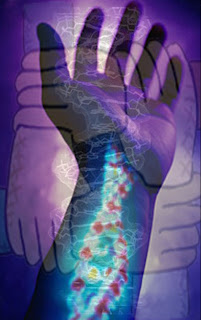
The Genographic Project
Journal Entry # 4
The Genographic Project is lead by geneticists stationed all over the world. They each acquire their own field research and do their own analysis. But what helps to make this project above that of others, is that each geneticist helps the others and shares ideas, knowledge and methods of practice. Their are also a number of technological advances that accompany this project. These are such as advances in mining tools and machine speed calculation. This increases the efficiency in which DNA can be collected and the memory and overall ability of their computers.
But what makes this project only possible today is our highly mobile, global society.It is because of our transportation abilities that geneticists can travel to all parts of the world and retrieve the research that they need. They would not be able to do this project 100 years ago, 50 years ago, or even 25 years ago. They could try, and probably find some crucial information, but not nearly as much as they would today. Even just 25 years ago they would not have the technology, the resources, or the transportation they would need.
The Genographic Project is a five-year study to establish the world's largest collection of DNA samples and to map out how mankind has populated the planet. It is an important project because it will reveal the migratory history of humans and help us to understand the connections, differences, and similarities that make up mankind. It will provide information on how we travelled the world, what kind of impact culture has had on the genetic variation of humans, and why then if we all share a common ancestor, do we all look different? The timing of this project is very important because only now do we have the resources available for such a research project, and there are still groups of people who carry the direct genes of their ancestors.
Indigenous groups are extremely important to the project because their genetic identities are isolated. They are not like most other people in the world whose DNA are mixed with people from all around the world. The indigenous group's DNA are easier to read and provides a clear understanding to the genetic signals of mixing populations.




